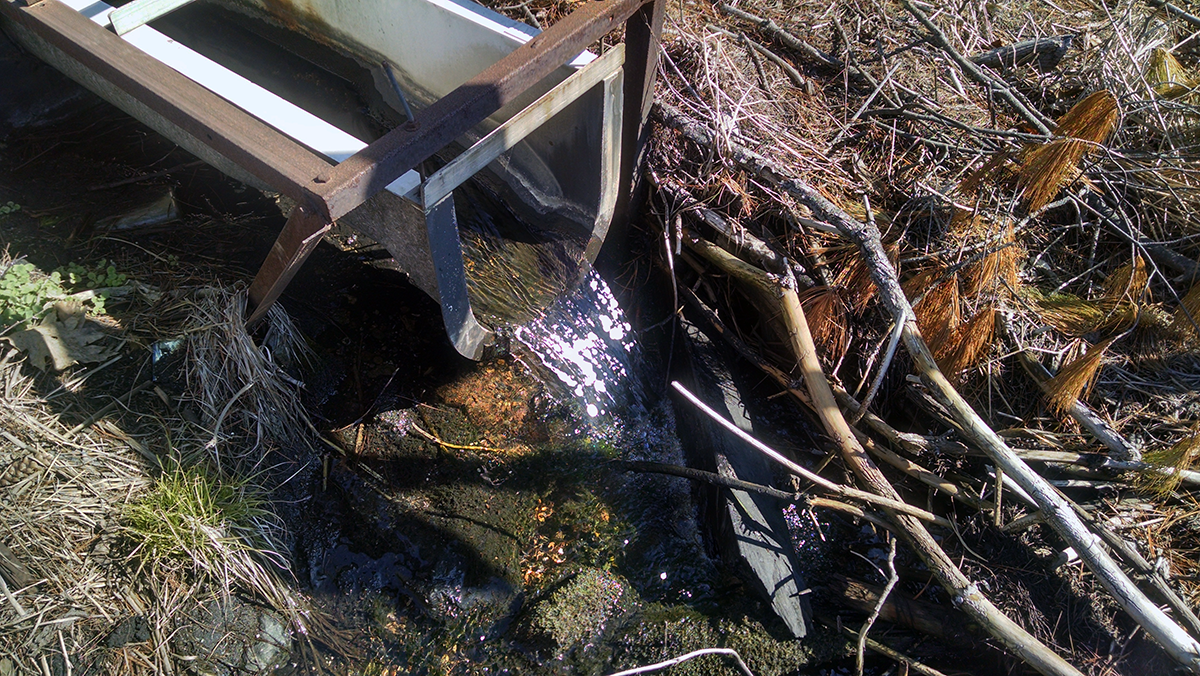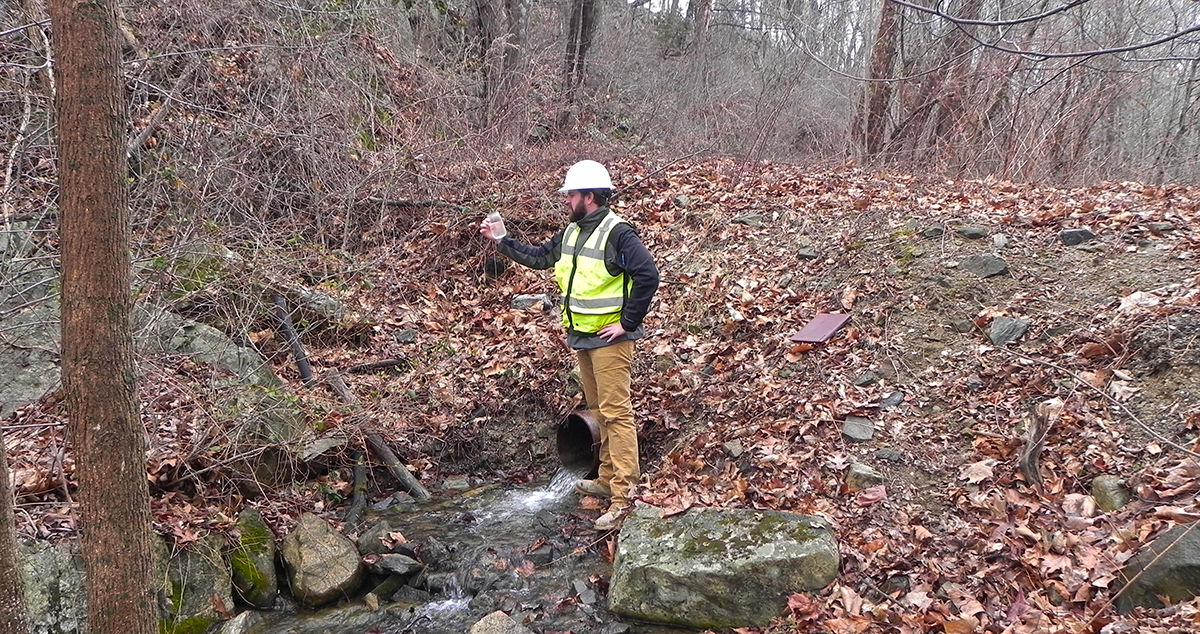Learn the difference between SPDES Permits and SWPPPs.
We get it. A lot of what we talk about is nothing but alphabet soup. SPCC Plans. Tier II CRTK Reporting. There's a lot of acronyms out there in the environmental world, and while I'm sure you're an expert in your own business, all these acronyms can get very confusing to people who aren't environmental professionals.
This goes doubly so for businesses in New York operating with a NPDES stormwater permit, which in New York is a SPDES permit. Part of SPDES stormwater permits in New York is having a Stormwater Pollution Prevention Plan, or SWPPP for short. As you can imagine, many people aren't sure if a SWPPP and SPDES are the same thing, what the differences are, or if they need them both.
These are good questions to ask if you are trying to stay in compliance with stormwater regulations. If you don't understand the answer, chances are pretty good you don't understand the regulations, and if you don't understand the regulations, chances are you're doing something incorrectly. And you know where that leads... trouble.
What is a SPDES permit?
First off, let's get one thing out of the way. SPDES is the name of the water quality permitting program that is in place in New York. These permits are the State analog of the Federal NPDES program that regulates the same thing from the Federal level. SPDES, State of New York, NPDES, Federal government. Got it? They're the same thing more or less.
But what is SPDES permit!?
The short version is this: it's a permitting system designed to limit the pollutants in stormwater that leaves YOUR site. Rain falls on your facility, picks up pollutants, flows off-site, and it's your responsibility to keep the pollutants to a minimum.
The long version is this: SPDES stands for State Pollutant Discharge Elimination System, and is the State of New York's permit program that requires anyone who discharges any pollutants to waters of the State of New York to get a permit, a discharge permit. Make sense?
Any type of discharge, including from point sources at industrial facilities, stormwater discharges from industrial facilities, stormwater discharges from towns or cities, and even construction sites, to a whole host of other types of discharges, are covered under the SPDES permitting program in New York. It's a big, comprehensive permitting program that can get, well, pretty complicated.
Most people we run into, and who become our clients, interact with the SPDES permitting program by having stormwater discharges, therefore needing a SPDES stormwater permit. And, most of them are from some type of industrial operation or facility. After all, home, empty field, industrial facility, parking lot, or job site, it rains on everyone equally, doesn't it? And so, in a huge state like New York, that means a lot of industrial facilities are required to get SPDES permits for - you guessed it - stormwater discharges.
In fact, that's why we often refer to SPDES permits as "stormwater permits". Yes, SPDES permits can be stormwater permits, but that's not entirely correct. Here's the deal: all stormwater discharge permits in New York are SPDES permits, but not all SPDES permits are stormwater discharge permits. For example, you could have a SPDES permit that covers process water discharges. Process water being the water you generated at your facility during the process of running your business. I like to break it down like this. If it comes from the sky, it's stormwater. If it doesn't, it's process water.

So what is a SWPPP?
If at this point you're not sure what an SWPPP is, you might want to read this to get up to speed: What is a SWPPP?
Suffice to say, it's your plan, your handbook, your guide, call it what you will. It's that "book", likely found in an office somewhere at your operation. The short answer is it's your plan to prevent pollution of stormwater. As we mentioned above, your SPDES permit requires you have a SWPPP, which stands for Stormwater Pollution Prevention Plan.
So simply put, if you have a SPDES permit, chances are pretty good it's a stormwater permit, and if you have a stormwater permit, chances are almost 100% that you're required to have an SWPPP in use.
SPDES Stormwater Permits ONLY require a SWPPP?
I'd be remiss if I didn't say that a SWPPP isn't the only permit requirement of a typical SPDES stormwater discharge permit.
A permitted facility will also likely have to sample and monitor their stormwater discharge. And conduct inspections. And conduct personnel training. And document their activities related to managing their SPDES permit. And prepare and submit records to the government... The list goes on and on! A facility with a SPDES stormwater discharge permit requires your business to do a lot more than just having a SWPPP.
What is a SWPPP Permit?
We also sometimes hear funny things from potential customers regarding SPDES permits and Stormwater Pollution Prevention Plans.
One thing we hear a lot is they need a "SWPPP permit". Folks, there's no such thing. Most likely your getting your acronyms confused.
We also hear the need for a "SPDES plan". Again, no such thing. Chalk it up to that alphabet soup we mentioned earlier. If you're not an expert in stormwater and the regulations surrounding them, it's easy to get these terms switched. It's no big deal, just make sure when push comes to shove you know the difference, especially when it comes to training or talking to a regulator from the DEC.

Can I have a SWPPP without a SPDES permit?
There are occasionally times when a facility might, for whatever reason, not have a SPDES permit but still have a SWPPP.
We recently did this for a facility that was covered under that state's "no exposure certification", meaning that they didn't have anything outdoors that could possibly pollute stormwater runoff because everything was stored and manufactured inside. However, their corporate policy said they needed a SWPPP regardless, even for facilities which did not need a discharge permit.
So, we prepared one for them. Odd, but not a terrible idea as it instills some good practices for them to follow, such as conducting inspections, doing environmental training, documenting their processes, etc. This organization would probably do these activities anyways, but at least this way they are following some form of regimented plan.
But normally, a facility has a SPDES permit, and they need a SWPPP. They're not the same thing, but they're connected.
SPDES Permitting Help
Most folks asking questions about SPDES permits and SWPPPs are doing so because they need to get into compliance with some form of their SPDES permit. If that's you, and you need help getting your facility into regulatory compliance with SDPES regulations, we can help. Click here to contact us or give us a call anytime at 888-RMA-0230 to learn how we can help your business.



